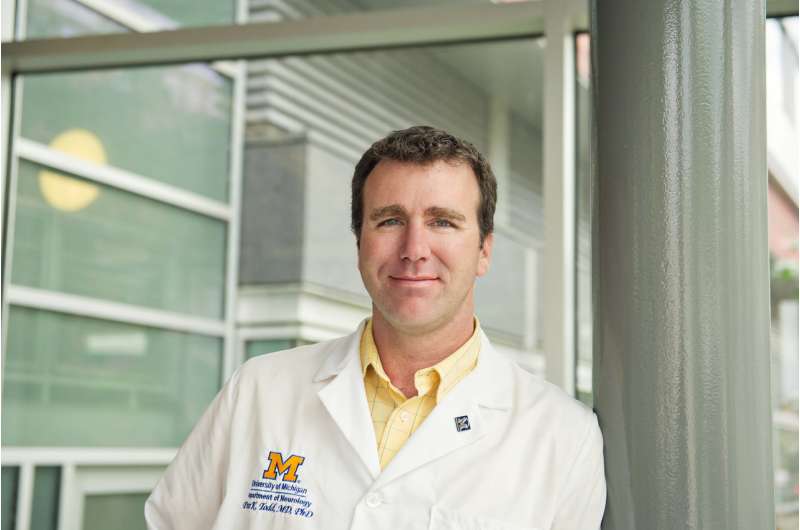Study finds genetic mutation causes 'vicious cycle' in most common form of amyotrophic lateral sclerosis

University of Michigan-led research brings scientists one step closer to understanding the development of neurodegenerative disorders such as ALS.
A study published today in Nature Communications details what the researchers describe as a vicious cycle of toxic protein production set in motion by cell stress. The paper explains how a repeat element in the DNA of C9orf72, a gene associated with amyotrophic lateral sclerosis and frontotemporal dementia, is translated into a toxic protein in the face of viral infection, starvation, toxins or problems with misfolded proteins.
It's the latest study investigating repeat-associated non-AUG (RAN) translation in a host of neurological disorders that result from repeat mutations, including Huntington's disease, ataxia and myotonic dystrophy.
"Stressed cells typically stop making proteins, but in this case the stress actually activates more toxic protein production, creating a loop that potentially drives neuronal death," says first author Katelyn Green, a U-M graduate student in cell and molecular biology.
"This suggests that outside stressors might influence when people get neurodegenerative diseases, even when the patient has a genetic mutation," adds senior author Peter Todd, M.D., U-M associate professor of neurology. "This may help explain when and why some people develop neurodegenerative diseases later in life."
The research addresses the most common cause of ALS, or Lou Gehrig's disease, leading to about 10 percent of cases. ALS is the most common motor neuron disease. The same repeat expansion mutation is also the most common genetic cause of frontotemporal dementia.
The researchers also found the same vicious cycle occurring at a second repeat mutation that causes a related neurodegenerative disease, fragile x-associated tremor/ataxia syndrome (FXTAS), suggesting this mechanism may be applicable to other repeat mutation disorders.
More information: Katelyn M. Green et al, RAN translation at C9orf72-associated repeat expansions is selectively enhanced by the integrated stress response, Nature Communications (2017). DOI: 10.1038/s41467-017-02200-0

















